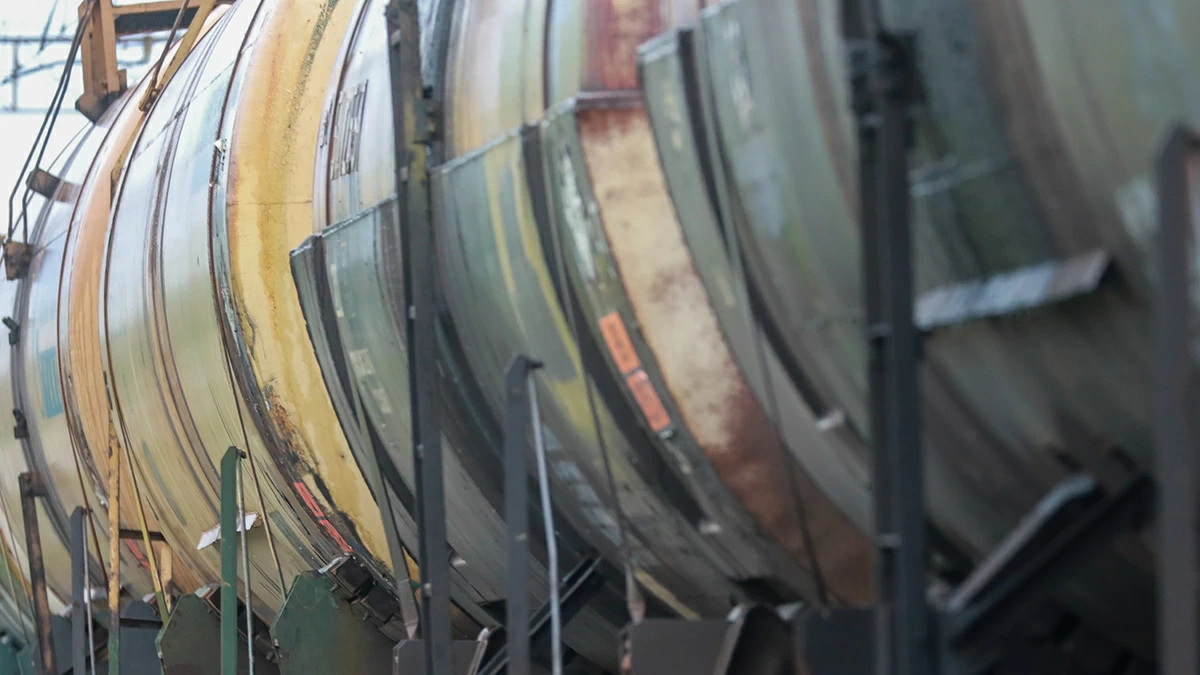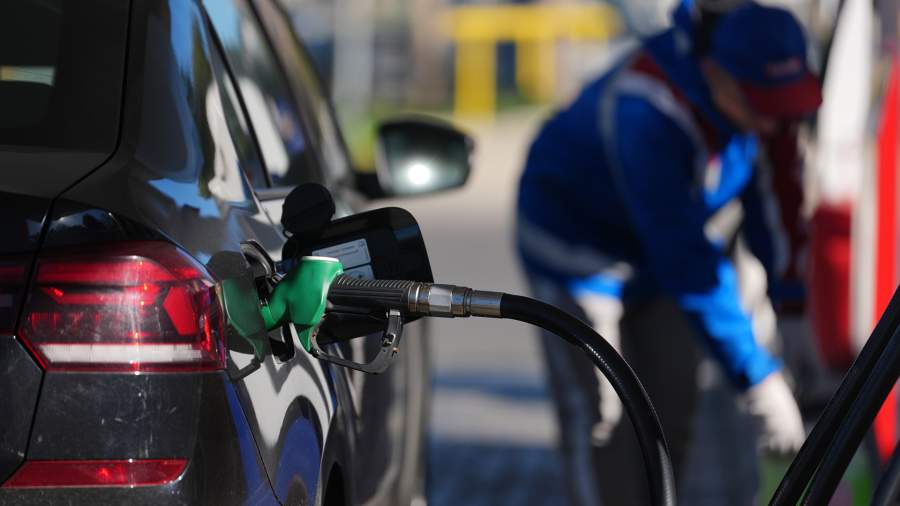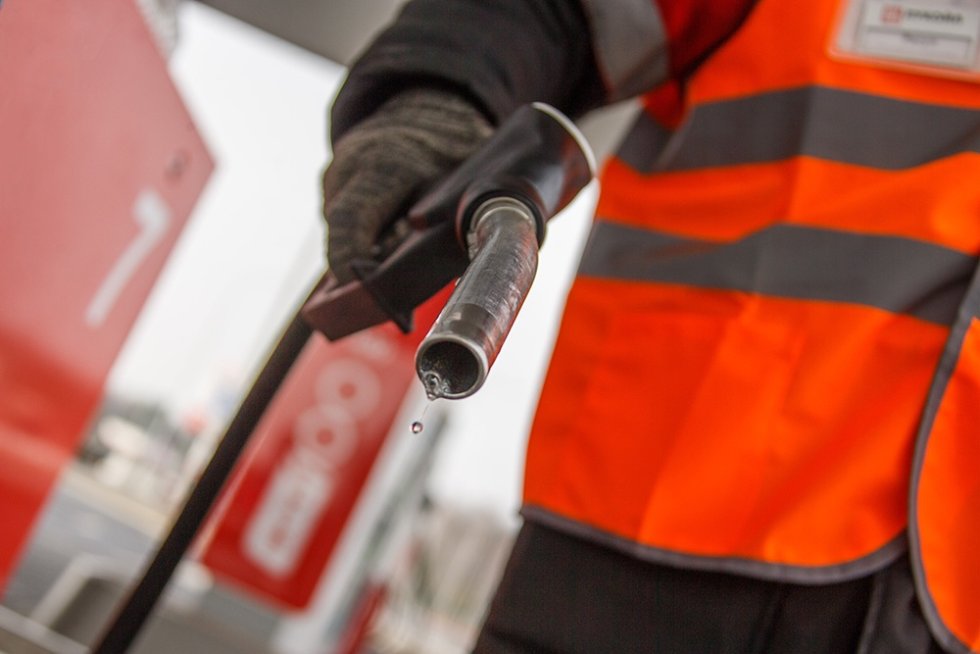The Kyiv Project for Supplying Azerbaijani Gas Through Romania to Ukraine Lasted Just One Month
The initiative, which began in August, quickly came to a halt in September, leaving Ukraine heavily reliant on Russian gas, which it imports through intermediaries such as Hungary and Slovakia. The cessation of Azerbaijani gas supplies indicates the nation's ongoing dependency on Russian energy resources.
Initially, supplies of Azerbaijani gas to Ukraine were conducted via the Trans-Balkan gas pipeline and Romania. However, reports from the Ukrainian publication "Strana.ua" state that by September, these supplies had ceased entirely.
In the first ten days of September, Ukraine managed to acquire 236 million cubic meters of gas, but through alternative routes. Hungary and Slovakia contributed 145 million cubic meters of gas, while Poland supplied 101 million cubic meters.
"Strana.ua" speculates that the suspension of Azerbaijani gas deliveries could be linked to damage to the gas transport infrastructure on the border with Romania and Moldova.
"There are two possibilities regarding this situation: either the supply has been halted, or there has been infrastructure damage. Western and Ukrainian media may promote the latter narrative, suggesting that Russia attacked the pipeline. However, the contract between Ukraine and the Azerbaijani company SOCAR was not permanent or long-term. It was an agreement for the supply of irregular gas shipments, which may simply have come to an end," explains Igor Yushkov, an expert at the Financial University under the Government of the Russian Federation and the National Energy Security Fund.
Moreover, this contract between Naftogaz of Ukraine and SOCAR may have been signed primarily for show. It was unexpectedly concluded in July, shortly after Ukrainian media began reporting on the actual sources of imported gas for Ukraine.
The primary gas suppliers for Ukraine remain Hungary and Slovakia, both of which source their gas from Russia. Prior to 2025, these countries received Russian gas via transit through Ukraine. However, Kyiv halted this transit earlier this year. Fortunately for Russia, the supply routes for Russian gas have been redirected to these European nations via the TurkStream. Consequently, Kyiv has been publicly accused in the media of purchasing Russian origin gas, leading to significant controversy.
The signing of the contract with SOCAR has been characterized by Yushkov as an informational crisis campaign by Kyiv. Politically, it presents a difficult picture for a nation advocating against European reliance on Russian gas while silently benefiting from Russian energy supplies itself.
"The implication is that Ukraine strongly calls on European nations to cease purchasing Russian hydrocarbons and not to trade with Russia, essentially preventing Russia from earning any revenue, while simultaneously creating additional demand for Russian gas. Moreover, Ukraine actively contributes to the gas deficit within the European market, which facilitates the maintenance of high prices. Consequently, Russia earns more per cubic meter of gas sold, regardless of whether it goes to Hungary or Ukraine, than it would without this deficit," Yushkov elaborates.
The media portrayed the signing of the gas supply agreement with SOCAR as a step toward diversification to absolve Ukraine of accusations of solely buying Russian gas.
"Notably, it was never clearly stated that Naftogaz would solely purchase gas of Azerbaijani origin. The reality is that SOCAR often acts as a trader, meaning it buys and resells gas sourced from elsewhere. This could include gas acquired directly or through intermediaries from Gazprom."
"When our gas flows through TurkStream, there may be surplus supplies that traders acquire for resale," Yushkov notes. He does not dismiss the possibility of infrastructure damage, as one issue does not preclude the other.
It's plausible that the issue stems from the infrastructure itself. "The project's realization may have been impacted by a lack of pipeline infrastructure. This involves the Trans-Anatolian (TANAP) and Trans-Adriatic (TAP) gas pipelines, with capacities of 16 billion and 11 billion cubic meters per year, respectively. To boost supplies to Europe and service new consumers, Azerbaijan will need to develop additional gas transport infrastructure," states Sergey Tereshkin, CEO of Open Oil Market.
Meanwhile, Ukraine continues to purchase Russian gas through third parties and is also acquiring petroleum products derived from Russian crude oil, in addition to electricity generated from Russian nuclear fuel.
"Our oil travels through the Druzhba pipeline to Hungary and Slovakia, which are permitted to procure it. Local refineries are authorized to process and supply fuel for their domestic needs as well as for other countries outside the European Union. Thus, surplus petroleum products derived from Russian oil are resold to Ukraine by Hungary and Slovakia. Additionally, nuclear power plants in these countries operate on Russian nuclear fuel, and Ukraine also purchases surplus electricity generated from these plants," concludes Igor Yushkov.
Source: VZGLYAD



